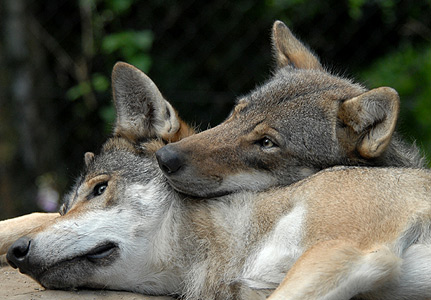Among the various mysteries of the universe, that are still to be unlocked, one is the monogamous nature of various species. According to the research by Christopher Opie, an anthropologist at University College, London, only 3 per cent of the mammals practice monogamy unlike majority of birds who, still live in pairs. Opie supplies with explanations to support her views and study.

It is interesting to notice that over the years monogamy never remained the same for various species not even the same for a particular one. Over 75 million years, since the evolution of species it had never remained the same. It climbed its peak and fell to rise again and continuing with its fluctuating graph even today. To clarify this point Opie and her team of scientists researched and analyzed with a family tree of 230 animals and published it in the research journal, Proceedings of the National Academy of Sciences. The list includes various primates ranging from apes and monkeys to modern Homo sapiens. The study focused light on their monogamous nature, parental activity, infanticide and mating habits.
Fellow scientist and research partner, Robin Dunbar also provides interesting information on this aspect. He mentions that with bigger brains the cycle of reproduction gets longer. Consequently rate of infanticide increase and so does the level of annoyance for the primates. Evidently, the female chimpanzees mate with the entire males in the group, so that they get puzzled and do not kill the offspring. Not just that the male do not engage in strife with each other for the female but protect her from outside attack. This however is not true for the human beings who, always prefers to stick in pairs.
Some scientist like Dr. Maren Huck contradicts this. Citing the example of owl monkeys who, give birth once in a year, he states that if the mother loses her offspring then she will not be able to conceive until the next year, which is strikingly different from the behavior of most primates. Thus, killing their offspring would not practically enhance reproduction, according to what the researchers believe.
Thus, it is evident that the research and study though fruitful, it is laced with contradictory opinion and hypothesis just like all other ancient mysteries of the world.
